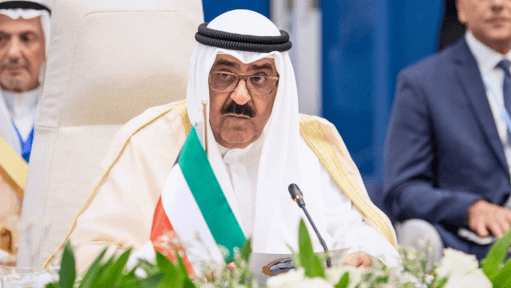
Kuwait's Emir Dissolves National Assembly and Suspends Some Constitutional Articles
Emir hints at a comprehensive examination of all facets of the democratic process
Kuwait’s Emir, Sheikh Meshal Al Ahmad Al Sabah, has issued a decree dissolving parliament and suspending some articles of the constitution for “a period not exceeding four years,” following weeks of political tension subsequent to recent elections.
“We have ordered the dissolution of the National Assembly and the suspension of certain articles of the constitution for a period not exceeding four years,” declared the Emir in a televised address on Friday evening.
“The recent turmoil in the Kuwaiti political landscape has reached a point where silence is no longer an option, thus we must undertake all necessary measures to safeguard the best interests of the country and its people.”
The Gulf nation conducted its fourth elections in as many years last month, with 39 of the 46 members from the previous parliament retaining their seats. During the suspension period of the constitutional articles, a comprehensive examination of all facets of the democratic process will be conducted, as stated by the Emir.
The authority of the National Assembly will be assumed by the Emir and the country’s cabinet, according to state TV reports.
“Kuwait has weathered some challenging times recently... which leaves no space for indecision or procrastination in making the tough decision to rescue the country and secure its paramount interests,” the Emir emphasised.
As per Kuwait’s constitution, a new government must be established within two weeks of an election. However, tensions between the elected parliament and the appointed Prime Minister since the April 4 elections have hindered such formation.
On April 15, Sheikh Meshal appointed Sheikh Ahmad Abdullah Al Ahmad Al Sabah as Prime Minister and tasked him with forming a new government.
Having succeeded his half-brother in December, Sheikh Meshal dissolved the previous parliament after a legislator used language deemed unconstitutional, and parliament declined to censure him. Following the speech, Kuwaiti analyst Bader Al Saif described the move as historic.
“The Emir delivered a remarkably detailed speech outlining his perspective on Kuwait’s ‘adverse reality’ – an undeniable reality given Kuwait’s consistent decline across various domains,” Al Saif remarked on X.
“He assigned responsibility to both the legislative and executive branches, enumerating in detail what he considers their transgressions.” Kuwait has been embroiled in domestic political disputes for years.
The reform of the country's welfare system has been a major point of contention, hindering the government from incurring debt.
Consequently, the government has little leeway to cover inflated public sector salaries, despite significant revenue from its oil reserves.
For any enquiries or information, contact ask@tlr.ae or call us on +971 52 644 3004. Follow The Law Reporters on WhatsApp Channels.